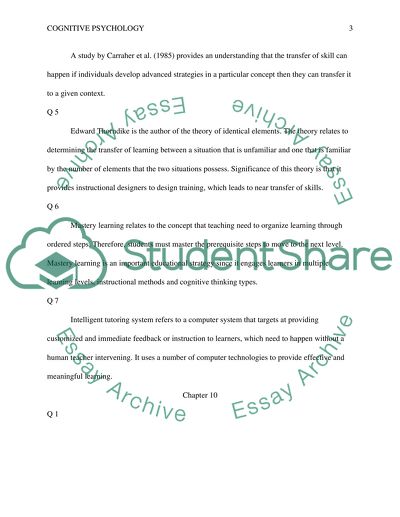Cognitive Psychology Coursework Example | Topics and Well Written Essays - 250 words - 2. Retrieved from https://studentshare.org/psychology/1673944-cognitive-psychology
Cognitive Psychology Coursework Example | Topics and Well Written Essays - 250 Words - 2. https://studentshare.org/psychology/1673944-cognitive-psychology.


